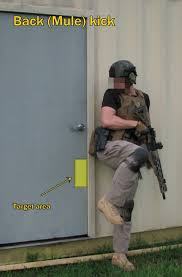Getting the Details Right
by Sheila Connolly
A month ago we Wickeds were all gathered at the New England Crime Bake, which every year brings together a terrific group of established authors, hopeful writers, agents, editors, readers and fans. It’s an intense experience that can last between two to four days (depending when you want to show up), much of which is spent talking to everybody.
The final morning (Sunday) is often devoted to some aspect of forensics useful to writers (although there was one excellent panel on the craft of writing, presented by four authors who have written books on that subject), and that was true this year. The speakers were a pair of former police officers (turned writers after retirement, of course) and an expert on cyber-crime. Both presented information based on their real-world experience.
It took me a couple of days to realize how different their presentations were.
The former police officers started with a hand-out quiz about standard equipment, strategies for dealing with a suspect, and how to respond to various situations that are particularly dangerous. Not many people in the audience got the answers right. One point that came through loud and clear: television and the movies often get it wrong. Producers are looking for dramatic action, and good angles for their shots. But on the street the actions they depict can be dangerous, not only to the officers but also to innocent bystanders or people just driving by.
One example: most police officers, firemen, etc., are shown kicking in a door while facing it. Wrong! It’s more effective to use a “mule kick”, facing away from the door and kicking backwards. It’s stronger, and it means that you aren’t about to fall on your face when the door opens, rendering you useless against an armed assailant. But it does look a bit ridiculous on screen.

The presentation made me realize that the average citizen doesn’t think through a lot of these details. The downside is, people are quick to judge when they read yet another report of a police officer using undue force in a pursuit or an arrest. No doubt there are some abuses of power (unfortunately often captured on a cell phone video these days), but decisions on the street must be made quickly, with little time to think. It is unfortunate but inevitable that some of these decisions may be wrong, but we should not assume they are due to anger or hate. And remember that these bad outcomes represent a very small percentage of all arrests.
The presentation on cyber-crime was almost diametrically different. Most of us (ordinary television viewers) know something about computers, but we may look at stories about hacking into all and anybody’s systems (including those of major governments) or tracking people down to the street corner where they’re standing, all within two minutes, as pure fantasy. But they’re closer to reality than we want to think.

There are a lot of cutesy terms involved, which may be unfair to the seriousness of the crimes involved. We’ve probably all heard about “Black Hats” and “White Hats” and “the Dark Web,” and it’s a little unsettling to hear an expert using them. Have you seen the terms “spearphishing” or “mudphishing” or “catphishing”? What about “warez sites”? They may sound a little silly (or look funny when written on the page), but all are real, and all can be dangerous to a clueless computer user (that’s most of us). Yes, there are hackers out there, and their goals range from “gee, let’s see what I can do” to “I want to take down a major government.” It’s scary.
So the bottom line is: in the case of law enforcement, there’s a lot happening that you don’t see or understand quickly, and in the case of the cybercrime universe, it’s all there in plain sight if you know where to look—but you as an ordinary citizen can’t do squat about it most of the time.
We as writers want to get the details right—but we’ve got a lot to learn. When you’re writing about crime, do your homework.
What do you think are the best sources for accurate information? Humans? The Internet?
Filed under: Sheila's Posts, Uncategorized




